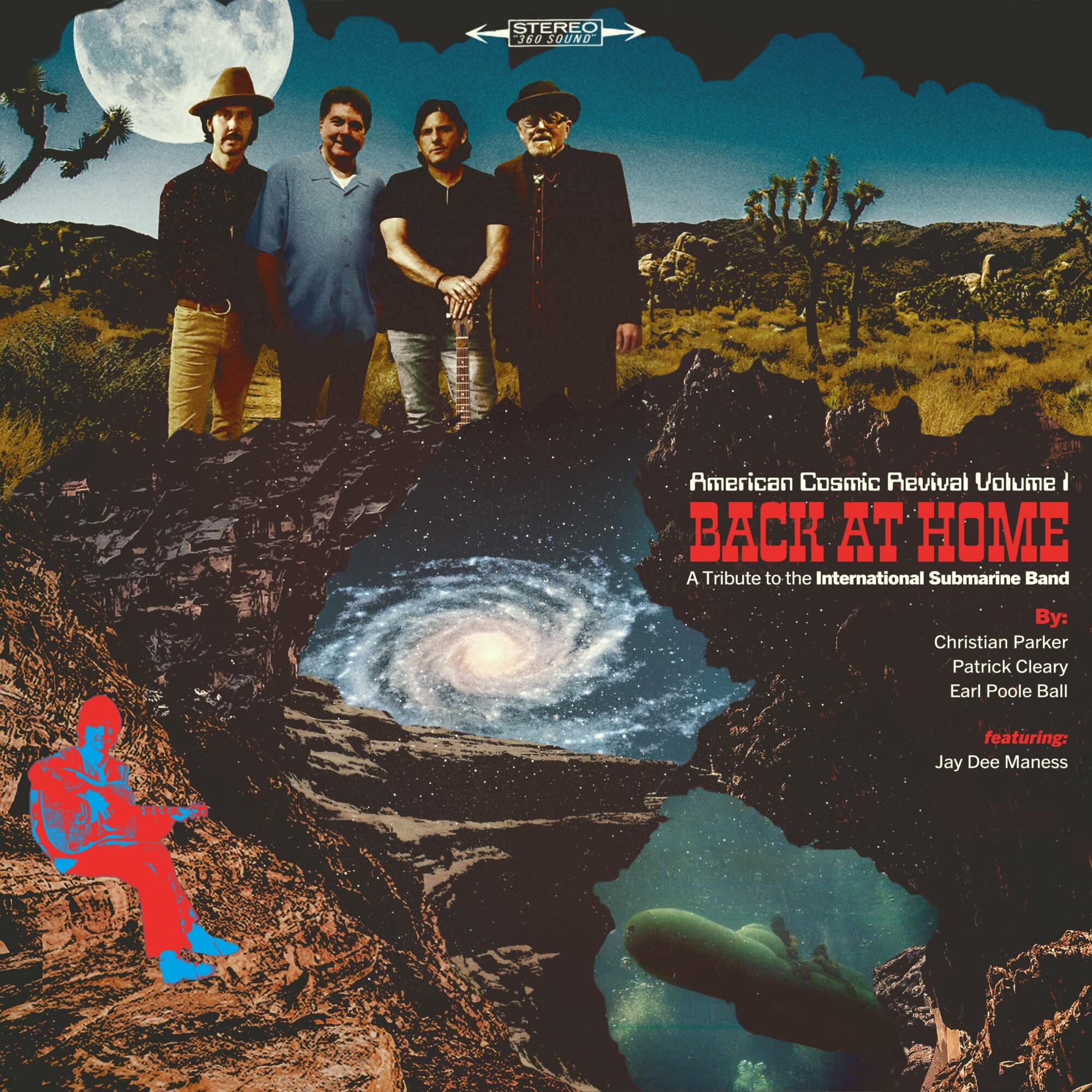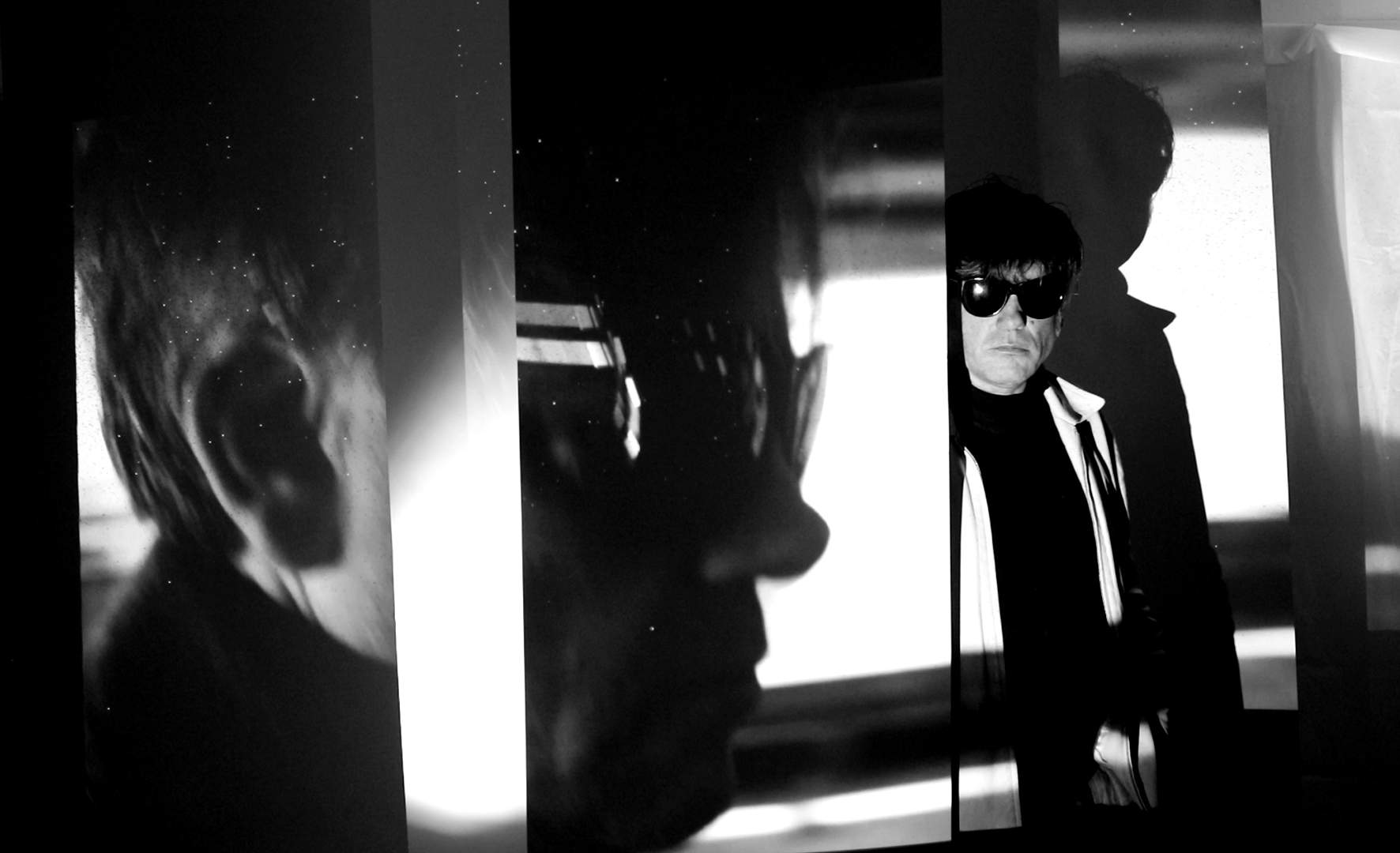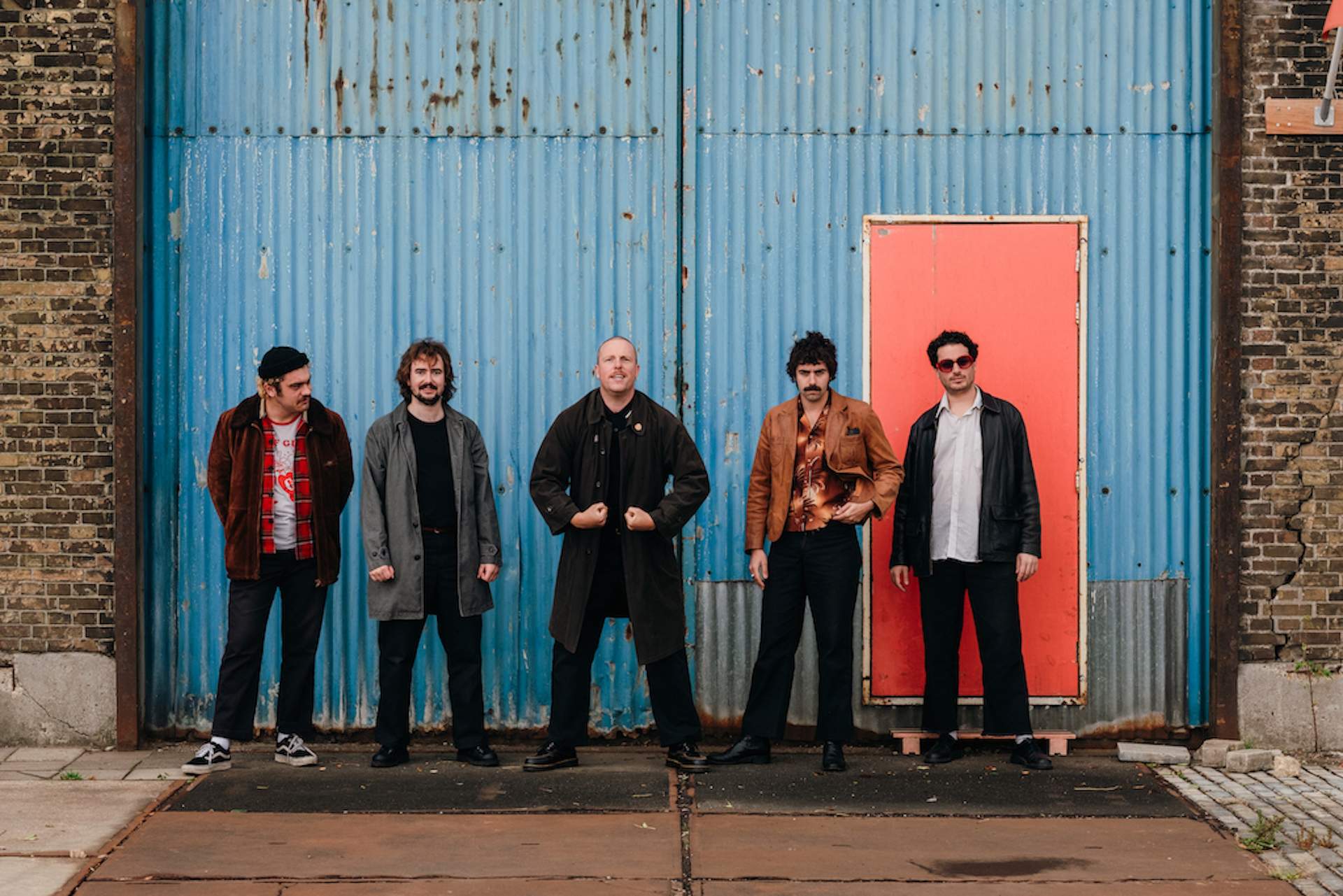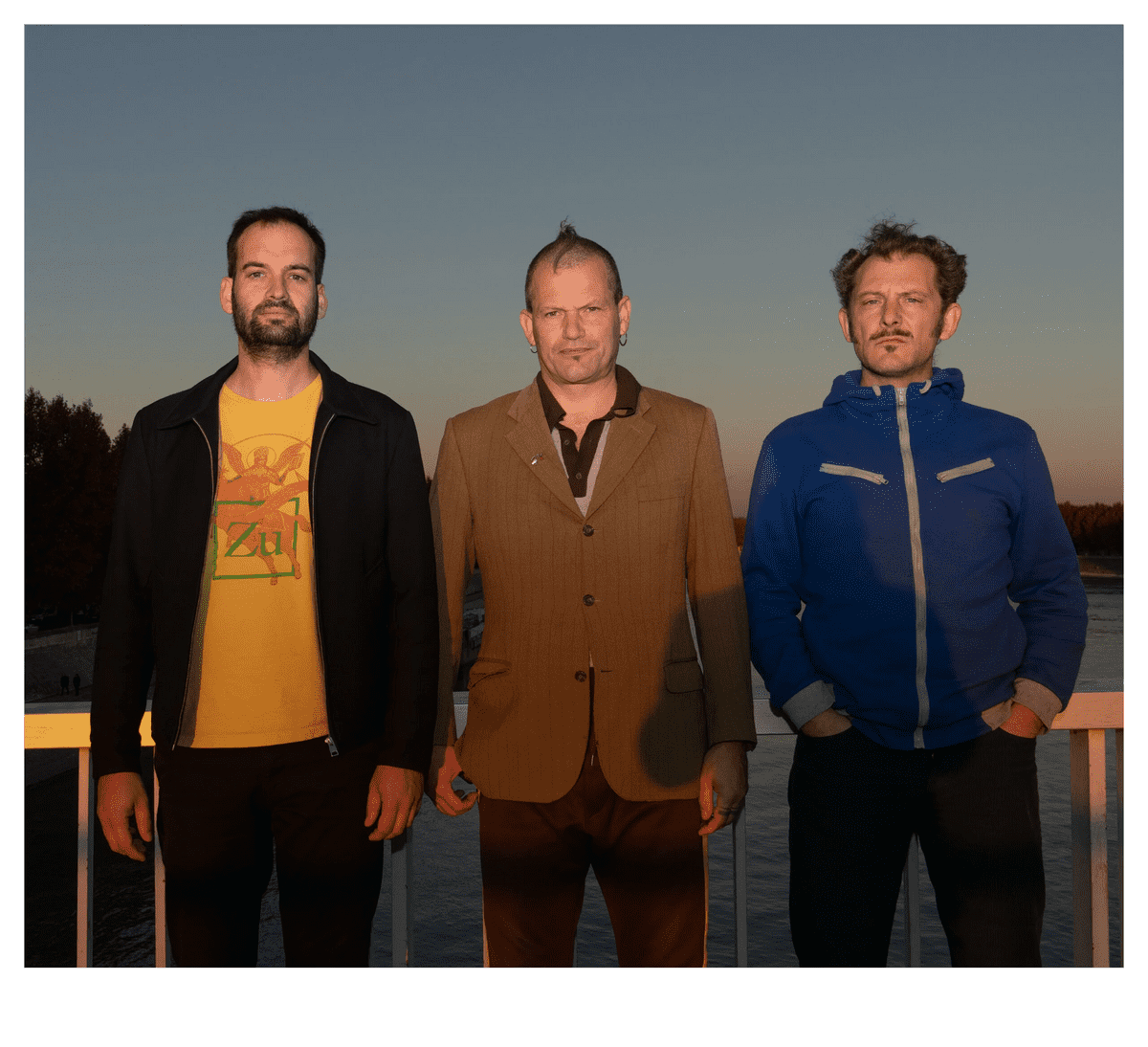American Cosmic Revival: Gram Parsons’ Vision Lives On with International Submarine Band & Sweetheart of the Rodeo Alums Earl Poole Ball and JayDee Maness
Nearly sixty years after its release, the International Submarine Band’s ‘Safe at Home’ remains a touchstone, its influence defining the “Cosmic American Music” movement initiated by Gram Parsons’ radical shift into pure country.
This wasn’t just blending sounds, Parsons was out there breaking the mold and carving his own cosmic trail. Christian Parker and Patrick Cleary carry that flame with real heart, turning their love for this music into a vivid continuation of a vision that still moves and breathes through new voices.
The album’s unparalleled authenticity stems from the involvement of original ‘Safe at Home’ members, pianist Earl Poole Ball and legendary pedal steel guitarist JayDee Maness. Ball’s heartfelt “The title makes my heart filled” validates the project, while Patrick Cleary notes, “we have the actual players themselves”. Crucially, Ball and Maness brought new energy, not replication, with Maness applying his current style. This dynamic evolution, where veterans actively shape the music anew, fosters a compelling intergenerational dialogue, as Christian Parker confirms their feel “shaped how I approached my parts” and influenced the mix.
‘Back At Home’ offers fresh perspective on Parsons’ “Cosmic” vision. JayDee Maness notes Parsons primarily “wanted to be a country singer,” challenging the “country-rock” label, which Earl Poole Ball recalls Parsons “detested”. This suggests Parsons’ aim was a deeper, soulful country music infused with roots genres. Ball’s recurring “three chords and the TRUTH” encapsulates the enduring honesty of these songs. While Christian Parker’s vocals echo Parsons, he aims to “carry his spirit forward,” not imitate, ensuring authentic interpretation over mimicry.
The album’s title, ‘Back At Home,’ signifies a return to fundamental artistic values: honesty, emotion, and storytelling. Earl Poole Ball links it to “spiritual roots,” and Christian Parker to finding his “musical home” in “simplicity and sincerity”. This “revival” aims to introduce new audiences to the potency of these songs, with JayDee Maness hoping younger listeners will discover this “new style”. Two more LPs are planned, ensuring Parsons’ legacy continues to resonate, reminding all that these songs, played from the heart, remain potent.
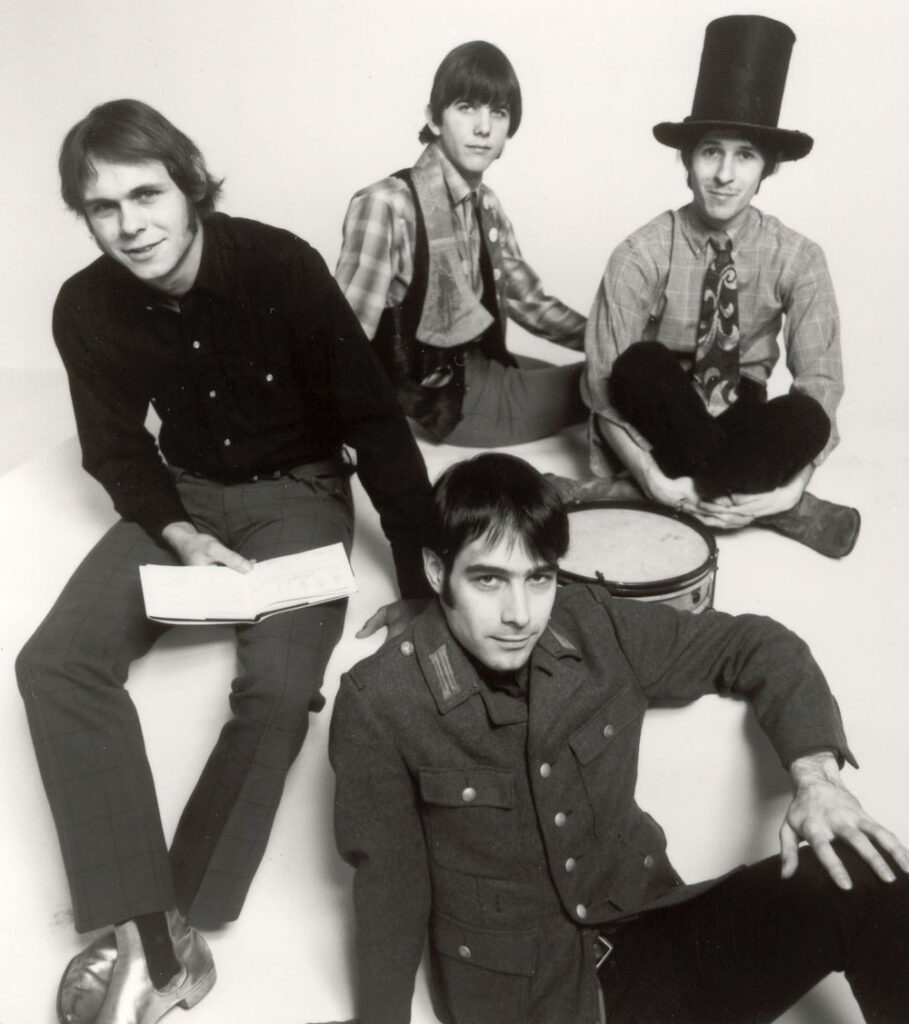
“Three chords and the TRUTH”
You moved from Mississippi to Southern California in the 1960s and ended up on albums like ‘Sweetheart of the Rodeo.’ Looking back, how did that journey shape your perspective now as you revisit Gram Parsons’ music for this new project?
Earl Poole Ball: The fact that I lived and worked in Mississippi to begin with gave me a foundation of the music of that region—from New Orleans to Memphis. Country, soul, blues, boogie-woogie, and gospel came from the radio and the café jukeboxes, all along that swath of land and river water. Somewhat the same influences Gram had.
You spent two decades playing piano for Johnny Cash, whom Gram Parsons idolized. Did Johnny ever talk to you about Gram or those country-rock sessions? Now, revisiting an International Submarine Band tribute, does it feel like coming full circle?
Earl Poole Ball: One time while in the back of the tour bus, the trumpet guys were playing the International Submarine Band on cassette and I made no comment to see what theirs would be. In the middle of the ‘That’s All Right Mama’ medley, Johnny stuck his head in the door and said, “Who is that?” Before I could answer, June needed him for something up front and it did not come up again. Yes, I have been in a wide circle—always have been—I see signposts!
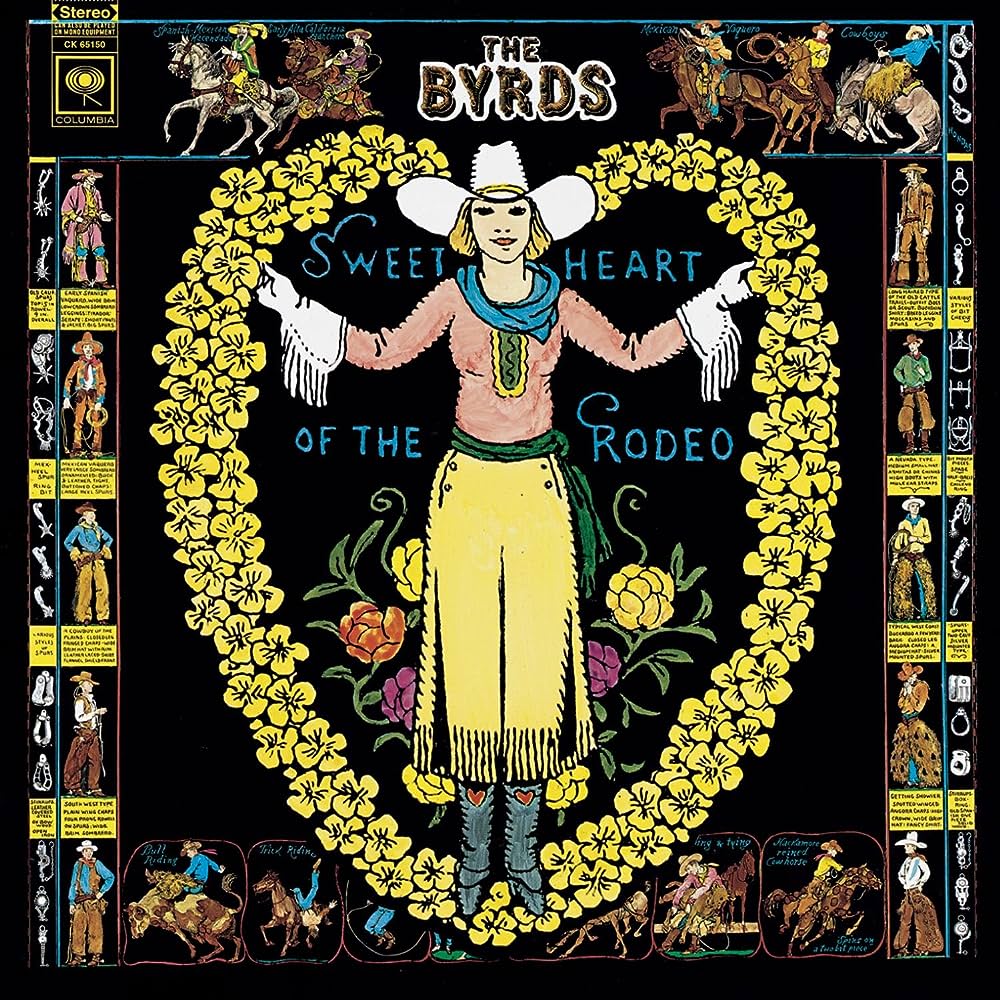
You played on the Byrds’ ‘Sweetheart of the Rodeo,’ an album that shocked Nashville. At the time, did you sense you were part of something groundbreaking? Today, what has remained constant about the power of those songs?
Earl Poole Ball: On ‘Sweetheart of the Rodeo’ I did feel involved in something much bigger than me. If these guys could just pull it off and Columbia Records could just realize the potential and join in the groundbreaking. The power of the songs remains in being mostly “three chords and the TRUTH,” as they mostly are, which makes for great country songs!
When you’re in the studio recording this album, do you ever feel transported back to those original 1960s sessions? Can you describe a moment during these recordings that gave you a real sense of déjà vu or clarity?
Earl Poole Ball: Yes, many times. While playing both the piano fills and rhythm tracks, I would sometimes be tempted to use many things similar to before but then usually give it a slightly new twist to freshen it up and roll with JayDee, as his part would be quite different in spots.
Gram Parsons famously coined the term “Cosmic American Music” for that wild mix of country and rock. You’ve lived and played in Bakersfield honky-tonks and Hollywood studios alike. Do you recall seeing any of that “cosmic” alchemy back then, and how do you hear it in the fresh recordings you’re making today?
Earl Poole Ball: Gram’s use of the term “Cosmic Country” in several interviews (I can only surmise) was to make sure no one called it Country Rock!—a name he seemed to detest! Country music seemed to dwell on a higher plane of truth in soulfulness and heart than the rocked-up average country song of the day, and it was delivered in a passionate and compelling sea of both mournfulness and joy.
And yes, I hear it again in these recordings.
‘I Still Miss Someone’ is a song you recorded for a Johnny Cash tribute album years ago. How have your feelings or your interpretation of that song evolved as you sing it now in the context of this International Submarine Band tribute?
Earl Poole Ball: ‘I Still Miss Someone’ is my favorite Johnny Cash love song. I do perform it now with a Texas 4/4 shuffle beat, making it easier to sing and play, and the dancers love it. I still love this song. After all, I am in Texas. For now!
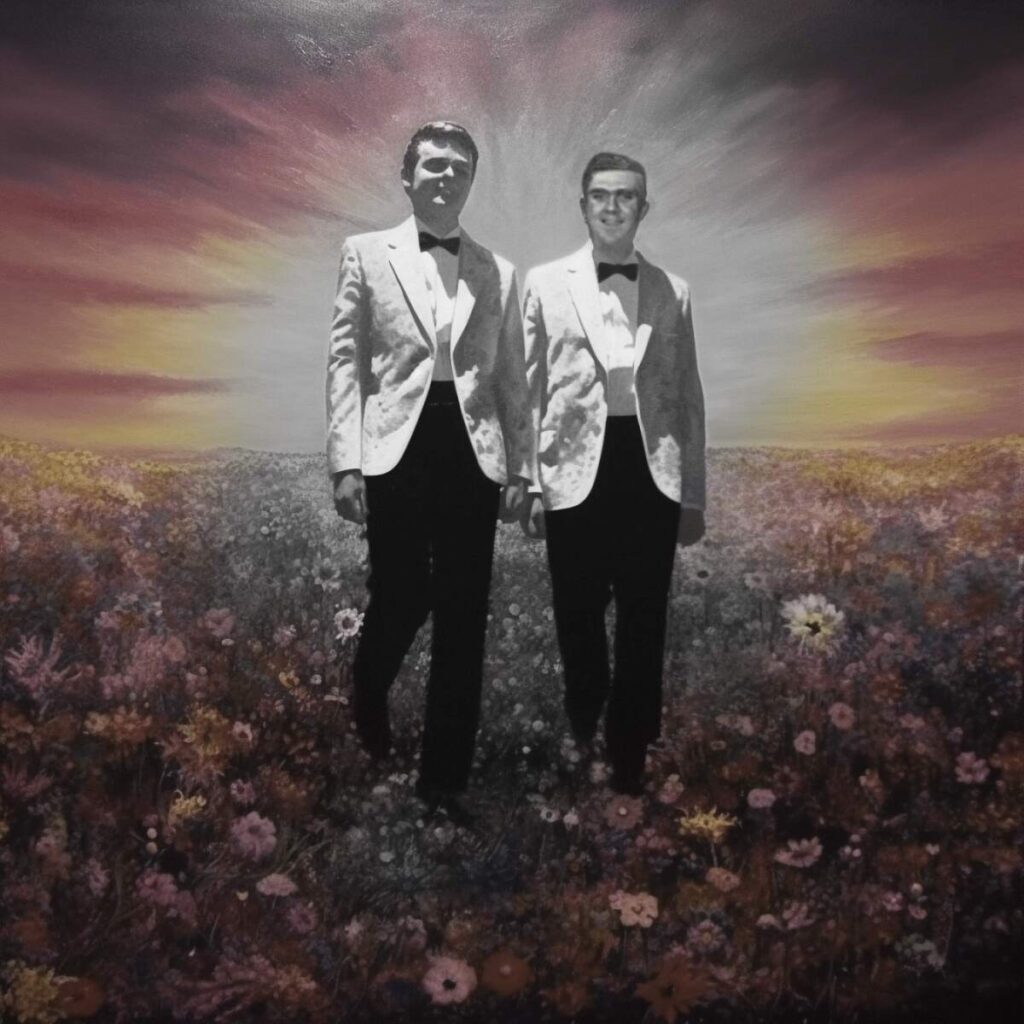
Back in the ‘Sweetheart of the Rodeo’ sessions, did Gram or anyone else ever give you specific guidance on how to play piano on those tracks – like “play it sweeter” or “don’t overdo it”? Did any of those informal “house rules” carry over into these new sessions?
Earl Poole Ball: That was a special time for me, recording with the Byrds and Buck Owens and Merle Haggard and Michael Nesmith. No one told me what to play much—they seemed to be glad to have someone with knowledge of what they were trying to do on the scene to hold up the piano end of things. On some songs I was told to just play rhythm all the way through, and on some it was both rhythm and fills.
When you sing these classic songs now, have any lyrics started to mean more to you with the passing of time? Is there a line in one of these songs that resonates more deeply with the life you’ve lived?
Earl Poole Ball: ‘I Still Miss Someone’ resonates with me most of all, as there was and is that someone. Also, ‘That’s All Right Mama,’ because it has to be.
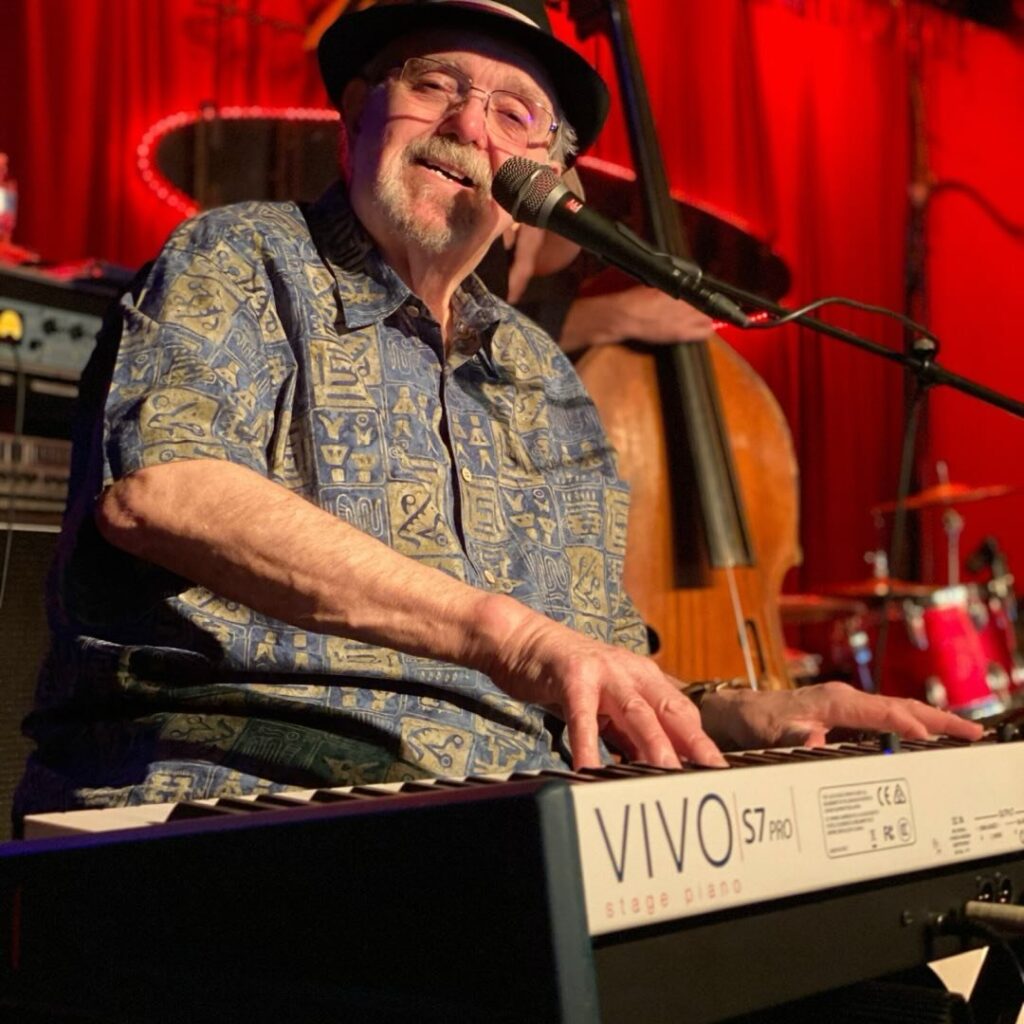
The album is called ‘Back At Home.’ What does the idea of “home” mean to you in the context of this music – a return to roots, a comfort zone, or something more abstract?
Earl Poole Ball: ‘Back At Home’ for me means a return to this music, also a wish to return to spiritual roots I keep searching for. There are so many.
Patrick Cleary and I discuss the music with JayDee Maness…
Patrick Cleary: We were just talking about recording the album and how you recorded your parts with Ed Tree.
JayDee Maness: I would go over there in South Pasadena, and he has a nice home studio there that’s very comfortable. I’ve done quite a bit of work for Ed, he’s one of the good guys.
Patrick Cleary: Do you know my friend Dave Serby?
JayDee Maness: Yes, I used to play music with his dad.
Patrick Cleary: When I first met you was at this Gram and Emmylou Tribute Night that Chris Burkhardt promoted, and Dave played that show as well as me. I was talking with him in the bar, and I’d seen him for years, but we had the chance to have a good conversation that night. He’s seen my band Country Sedan and wants to have us play a show. I didn’t realize we were all connected by Dave and Ed Tree. So Dave Serby’s dad played?
JayDee Maness: He was a bass player; his name was Pete Canton. He lived in the L.A. area and played bass in country bands. He’d call me or I’d call him. We’d all play in bands in those days; it shifted a lot, moved around. We got to meet a lot of people, and some of them are no longer with us, but it sure was a good time while it was happening.
Patrick Cleary: I have relatives that played music in Northern California and they said the drunk driving laws led to the decline of the live country music scene.
JayDee Maness: Well, it did happen that way and also because of the “no smoking” laws… you can’t smoke like you did in the old days, and so when you can’t smoke you look for other entertainment options, I suppose, but I believe they were right in banning indoor smoking. I spent decades breathing in second-hand smoke and I’m thankful I’ve made it this far.
Patrick Cleary: It was definitely an occupational hazard for you.
JayDee Maness: I never did like it. My family was a smoking family and I hated the smell. The air was full of smoke, your clothes smell like smoke, your instruments even turned yellow from nicotine.
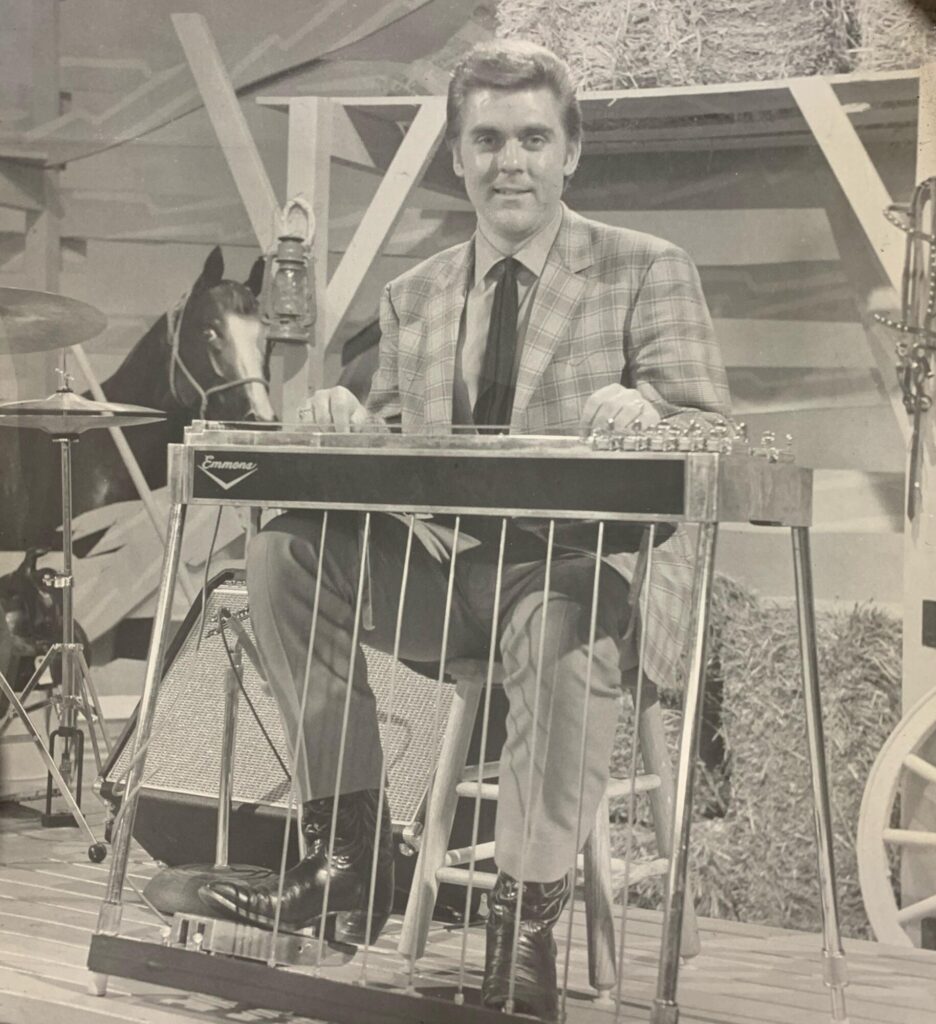
When you were in your early 20s recording the International Submarine Band album, did you have any idea of what you were part of? Looking back, what surprises you most about Gram Parsons and those early sessions you had?
JayDee Maness: Well, I didn’t know what I was a part of at that early stage. We just wanted to play what Gram called country music, and it is and was country music.
Gram was what I would call a medium singer; he wasn’t great, but he had a charisma about him if you saw him perform. A good-looking kid, kind of carefree. In that International Submarine Band era in 1967 we thought, “Well, this is great, we’re doing country music and songs we know. How easy can it be?”
It was another day at the office for me. When we were finished recording I thought, “OK, great, now I’m gonna get some more work and keep doing this. I like doing this for people.”
Of course, I’d been playing since I was eleven years old. And that’s a long time—69, 70 years I’ve put into this instrument—and I still like the way it sounds and what it can do in the right places and used in the right manner.
Patrick Cleary: Did Gram take an interest in the instrument?
JayDee Maness: Yeah, he loved steel. As you know, he had Sneaky Pete in his band. There was always a steel pretty close to Gram. He liked the old Hank Williams tunes, Lefty Frizzell, and those old songs. Steel was a big part of it in those days.
Patrick Cleary: He has always been effusive about your playing.
JayDee Maness: I try to play what people want and make them happy and make me happy at the same time. And sometimes it can be a tall order. It’s about what you didn’t play, and waiting for your turn, because there’s enough space for everyone to do their thing. And there are too many bands turned up to twelve, playing as loud as they can from the get go.
Patrick Cleary: They did have more restraint and respect for arrangement back then.
JayDee Maness: Of course that’s not the order of the day now, but I wish someone would get smart and start introducing that bandstand etiquette. And maybe they will. I hope I’m alive long enough to see that one more time. Those are the rules I live by.
Patrick Cleary: I think you still see that in bluegrass. It’s hard to play bluegrass without being organized. And the people that come from that background are better at arranging for country music. And Western swing was defined by letting instrumentalists shine.
JayDee Maness: And when everybody on stage abides by those rules, it’s really a lot more musical than just five or six guys up there just banging away. There’s nothing musical about that. You gotta be ready with ammunition and know what you’re gonna do. It can be done. There are some bands that still do it, but not too many that I know of.
Patrick Cleary: I’m always effusive about Marty Stuart and the Fabulous Superlatives.
JayDee Maness: Yeah, that’s a good band.
Patrick Cleary: I think they keep that old-school ethos alive. They just released a new instrumental record called Space Junk and it’s a Record Store Day exclusive.
You played pedal steel in Buck Owens’ honky-tonk band and then with Gram Parsons’ country-rock group – two very different worlds. How did your approach on the steel guitar differ between those gigs, and did you find any common ground in the spirit of the music?
JayDee Maness: Well, I never changed my style. I tell people, “I don’t play like I used to,” but I really do. I just played what I play and tried to make it fit with what Gram wanted. With Buck, it was a little harder to do, because he wanted me to play like Ralph Mooney or Tom Brumley, and I don’t play like those guys. So that’s why I didn’t last in Buck Owens’ band. But I’ve always tried to be true to myself and make what I do work with the situation.
Patrick Cleary: After you left the Buckaroos, Buck didn’t have a pedal steel player for some time.
JayDee Maness: Yeah, he wanted to try the band without a steel, even before he hired me. That was just an idea I have, and it may not be true, but I think it is. But he went, “Well, I gotta have a steel in here because I’ve always had one,” so he tried, and it really didn’t work. He did his best records early on. Later on, he did some pretty cool stuff, but he stepped outside of the Buck Owens realm, and sometimes that doesn’t work with artists.
People get to know you by what you play and sing, and when you come out with a new song you have to go, “Hey, this is really good, you need to listen,” even though they want to hear your old hits. You have to evolve, and it changes a little bit with new band members, but the fans want to hear your big hits. That’s why they bought the ticket. You can introduce a new song to see if they kind of like or really like it. It’s a juggling act.
Gram talked a lot about breaking down walls between country and rock. Did he ever talk to you in the studio about how he envisioned the steel guitar fitting into that vision? Did he ever challenge you to play outside the usual rules of country music?
JayDee Maness: No, Gram never told me what to play or to do. I feel like he trusted my judgment about what to play. I just tried to fit into what he was doing. His idea of rock wasn’t that deep. He wanted to be a country singer until later when he got tied up with other people who were really rockers.
Patrick Cleary: Like The Rolling Stones?
JayDee Maness: Yeah.
Patrick Cleary: I remember reading about a gig you did with Gram and The Byrds at The Whisky A Go-Go, a farewell for Derek Taylor. I wish I could go back in time and see that show.
JayDee Maness: I wish I could go back too because I’m pretty foggy about that particular show. But I wanted to be a session guy and perfect my craft. I told the guys in The Byrds, “I don’t want to travel, I want to stay in town.” And they didn’t push back hard. I felt like I needed to speak up for what I believed in, and that’s what I did. Traveling is horrible under the best conditions; you have to be there on time, you have to be clean. You’re expected to be all these things you’d be anyway, but when it’s your job you have to perform. And part of that is doing the backline and making sure everything works, and when it doesn’t, you go into a spin and you need help. The cartage guys are a big help when traveling.
Listening to our new versions of songs like ‘Blue Eyes’ and ‘Luxury Liner,’ do you hear echoes of how you played back then? Or did you find yourself trying out something completely new on your pedal steel for this project?
JayDee Maness: I kind of tried something new, like the way I play now, as opposed to how I played back then. Back then I was trying to be Lloyd Green. And he’s my favorite steel player on the planet. I still try to do some of the things he has done, and he’s shown me a few things. But I finally realized, no matter how you try, you can’t play like somebody else. You have to do what you do best and build on that, and that builds you a style.
And people call me for what I can do and contribute in my own right.
I tried to play a little different on this new stuff for Christian. I enjoyed the record; it really turned out good.
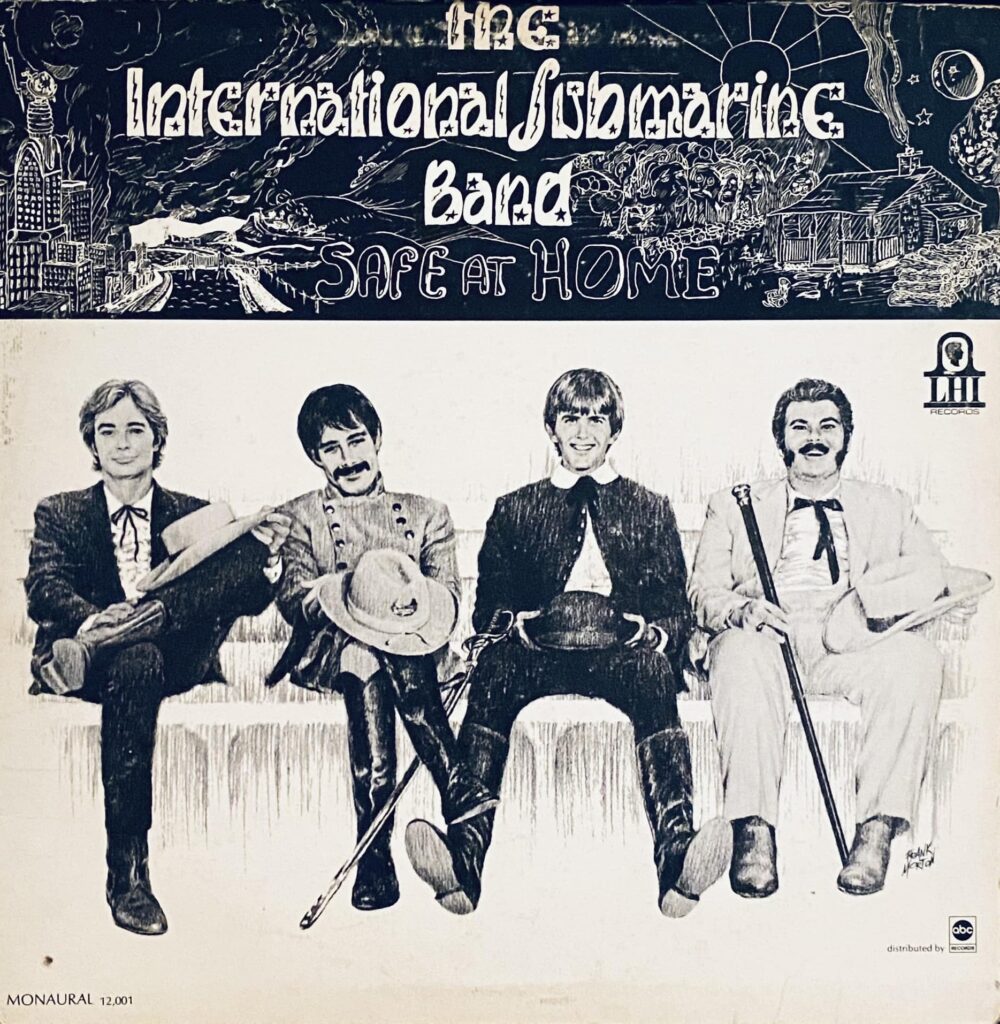
Now that you’re making music with Christian, Patrick, and Earl, do any session war stories ever come up? Was there a moment in these recordings where you all looked at each other and thought, “This feels just like a blast from the past”?
JayDee Maness: You know, the whole project was a blast from the past for me. Christian sings a lot like Gram and sounds a lot like him. I don’t know if he meant to do that or if that’s just his voice. I’ve never met him in person. We’ve talked on the phone though, and it’s obvious he wanted to do the Submarine Band album, which I always thought was better than The Byrds record. I liked the Submarine Band album a lot more.
Christian’s versions of these International Submarine Band songs are smoother, better recorded. I really enjoy the smoothness of it. It flows along with no bumps on the road. Everybody just played and did what they’re supposed to do, and I was pleasantly surprised by that.
Is there a hidden gem or unreleased moment from those original sessions that you always thought deserved attention? Did working on this album give you a chance to honor something you feel was overlooked?
JayDee Maness: I don’t recall anything that sticks out. For many years, the International Submarine Band album had a lot of fans, but people forgot about it. Now, with this ‘Cosmic American Revival’ series, it’s all coming back.
Patrick Cleary: I know ‘Knee Deep In The Blues’ was the only outtake from the original sessions until the re-releases on CD. That always seemed like a real outtake.
JayDee Maness: I don’t recall even doing that song.
Patrick Cleary: I’m not sure you’re on the original recording.
JayDee Maness: Yeah, but I’ve known that song my whole life and played it a million, maybe two million times.
Patrick Cleary: I figure that’s why they cut it, since everybody knew the song. I love that song. I recently found a Marty Robbins rockabilly compilation on Bear Family.
JayDee Maness: He tried a lot of different genres.
Patrick Cleary: It makes sense he could do ‘Knee Deep In The Blues’ after that period, since he had sung rock ‘n’ roll.
Your pedal steel playing has a signature sound. Do you ever catch yourself slipping into those old licks from the 1960s as you play these songs? Or did you push yourself to create new sounds for this record?
JayDee Maness: A little bit of both. I do play some things that sometimes make me think, “Well, I’ve done that for so many years, but it seems to work at this point,” so I do it. I don’t think anybody’s capable of coming up with brand new stuff every day. Maybe some can do that for a while, but then you start repeating yourself and you make something new out of something old. Whatever works at the moment. There are certain steel lines all of us steel players play—always have, always will—but you just add in whatever your thoughts are to those, and come up with something a little different, or maybe completely different. I like both ends of it when I’m trying to create something, or recreate.
Patrick Cleary: There are so many different elements that go into what you’re trying to do, depending on what the goal is.
JayDee Maness: You look at the situation, at the song, look at the lyrics, make it coincide with an instrumental line.
Patrick Cleary: Like the way we took ‘A Satisfied Mind,’ vocally it lent itself to a more bluesy approach.
JayDee Maness: Right.
Country songs often deal in timeless themes like heartache and longing. When you play these songs now, are there particular lyrics or phrases that strike you as just as fresh and relevant today as they were back then?
JayDee Maness: Yeah, there are certain things I play, and with the steel being so expressive, there are certain lines that come by, and I think, “Well, that’s different, but I’ll use it.” So, I surprise myself a lot of times, and to me, that’s really the goal, and hopefully somebody else likes it too. It’s always a two-way street with me. The artist has to be happy with what you’ve done, and you have to try and make yourself happy. That doesn’t always happen, but that’s the goal.
When people hear this album, what do you hope they feel about country music? If Gram Parsons were listening, do you think he’d feel that his vision is alive?
JayDee Maness: I think that the people who know the older music and hear this ought to enjoy it. They should—I hope they do. And people who are younger, who never heard of International Submarine Band, Poco, The Byrds, or any of those guys—I hope they pick up a new style that they like out of this and say, “This is really good, I want more of this!” Because it is good, and it deserves to have another life.
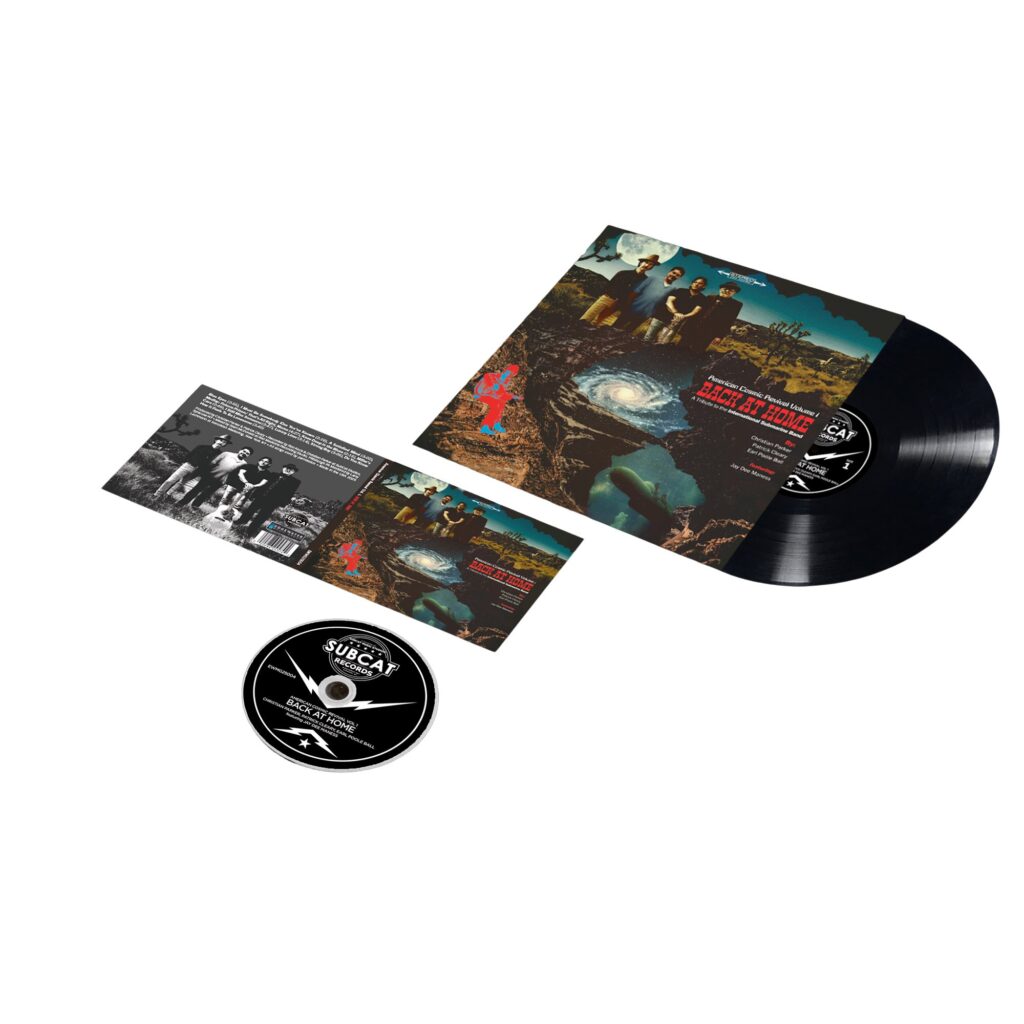
The album is called ‘American Cosmic Revival.’ How do you interpret that phrase – what does “cosmic” and “revival” mean to you in the context of this music and our time?
JayDee Maness: I don’t know, I don’t know how to explain this cosmic thing I never did get. Maybe you can enlighten me on those things.
Patrick Cleary: Haha. I’ll try to give you my best idea. I think it was about bringing in other elements to what was strictly country, like the way Gram covered ‘Do Right Woman,’ an R&B song, and ‘Dark End of the Street,’ a blues song. So, he was saying there was a “cosmic American music” not defined just by black and white, or the genres; like, we can have peace and love in a musical way: “I can sing an R&B song originally by a black woman, and be authentic” – that’s what it means to me: the oneness of the music.
JayDee Maness: Well, yeah, in a way you could take other people’s songs and their way of singing, and introduce yourself. I don’t know, that’s always been a mystery to me.
Patrick Cleary: Sometimes Gram would try on different styles, channeling Elvis in spots, and Merle Haggard in others.
JayDee Maness: As far as a revival, it’s great to bring these songs back. I wish more of that would happen, even with the ‘eighties music.
Patrick Cleary: You were helping, posting some gems from The Desert Rose Band the other day.
JayDee Maness: We have a piece in the Country Music Hall of Fame. I have a steel in there.
Patrick Cleary: The Western Edge, right?
JayDee Maness: Yeah, it’s gonna be gone around September, 2025.
Patrick Cleary: I have to get to Nashville this summer.
JayDee Maness: The last show Desert Rose Band did was there at that time it began, and they’re making a double album out of that. It’ll be available in August or September, and I hope that it’s good because we had a great time playing together.
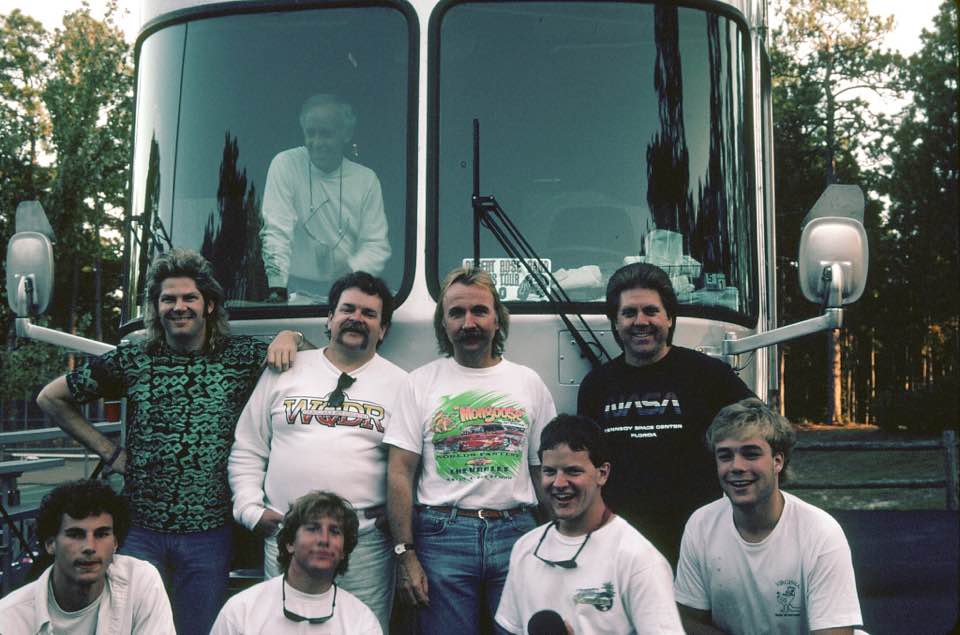
Patrick Cleary: I bet it’s great. Everyone in that band is a top-notch player.
JayDee Maness: It was my favorite band to ever play in. So, we spent a week there. And this last April the Country Music Hall of Fame inducted me into the Nashville Cats. They told me about all these hit records I’d played on and figured I needed to be a Nashville Cat. And you didn’t need to be from Nashville to be one. But it’s not a big list of players, it’s pretty elite. They were really nice and they gave me a plaque; I got to play ‘Misty’ again with Ray Stevens. So it was nice, my face will be hanging in the Country Music Hall of Fame.
Patrick Cleary: Right on! Well deserved. Thank you, it’s an honor to talk to you and learn firsthand about these artists and the music I’ve listened to for so many years.
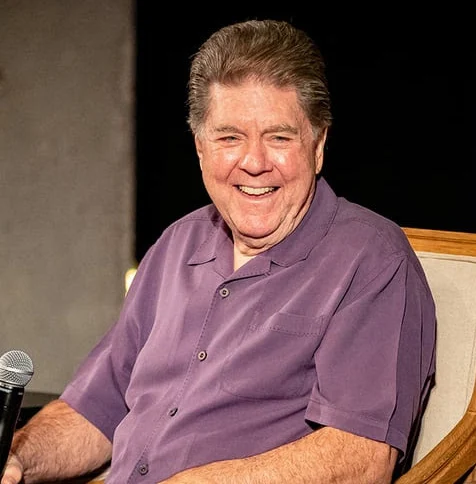
You’ve already paid tribute to Gram Parsons’ ‘Sweetheart of the Rodeo’ with your ‘Sweethearts’ LP. How did that experience of honoring the Byrds’ classic lead you to this new project? Did recording one iconic album prepare you for revisiting another?
Christian Parker: A tribute to the International Submarine Band’s ‘Safe At Home’ wasn’t planned. We were having such a great time collaborating that it naturally evolved into something more. Patrick Cleary and I both felt that putting more of the spotlight on Earl Poole Ball and Jay Dee Maness would make the project truly special.
“American Cosmic evokes those endless skies and open roads”
The term “American Cosmic” conjures images of wide-open skies and long highways. Has working on this project felt like a journey or pilgrimage for you? What’s the most cosmic or transcendent moment you’ve felt in the studio or on stage with these songs?
Christian Parker: Absolutely, this project has felt like a journey in every sense. “American Cosmic” evokes those endless skies and open roads, and working on these songs has been like tracing a path through the heart of American music. One of the most transcendent moments was hearing Earl Poole Ball’s piano alongside Jay Dee Maness’s pedal steel on the album’s opening track, ‘Blue Eyes.’ There was an undeniable magic, as if the past and present were meeting in the same breath. It’s moments like that where the music takes on a life of its own, and you feel lucky to be part of it.
Gram Parsons had a unique vocal and guitar style. How do you balance staying true to his essence in these songs while bringing something of yourself? Were there moments you intentionally did things differently to make it your own?
Christian Parker: Gram had such a distinct voice, both literally and artistically, that it’s impossible to approach his songs without feeling a deep sense of respect. I never wanted to imitate him, but rather to carry his spirit forward in a way that felt honest to who I am as an artist. The balance came naturally by focusing on the emotional truth of the songs. I leaned into the storytelling, the longing, and the cosmic ache that runs through his work. At times, I did make intentional choices, whether it was a different phrasing, a shift in arrangement, or even just letting my vocal tone take the lead, to reflect my connection to the material. It wasn’t about copying Gram, but about having a conversation with the legacy he left behind.
Looking back at the sessions for this album, is there a particular take or moment that stands out – maybe the first time you sang the lead on ‘Blue Eyes’ or worked out the harmonies on ‘Luxury Liner’? What was that like emotionally?
Christian Parker: One moment that stands out is singing lead on ‘Knee Deep in the Blues.’ It’s a simple song, but there’s a lot in the space between the lines. Getting the right take was about holding back just enough and letting the feel come through naturally. ‘Luxury Liner’ had a different vibe—fast-paced and more aggressive. Taking the lead on that pushed me to lock into the rhythm and drive the track forward. It was a challenge, but a fun one. Both tracks provided me with something different to work with, which kept the sessions interesting. One of the highlights for me is Jay Dee’s pedal steel; it’s one of my favorite tracks.
Some lines in Parsons’ songs are almost poetic. Have any lyrics from songs like ‘A Satisfied Mind’ or ‘Strong Boy’ jumped out at you in a new way now? Did they speak to something in your life or our times that you didn’t notice before?
Christian Parker: Yes, revisiting ‘A Satisfied Mind,’ written by Joe “Red” Hayes and Jack Rhodes, brought some fresh perspective. The line “The wealthiest person is a pauper at times compared to the man with a satisfied mind” really stood out. It’s a simple yet powerful truth, especially today when so much value is placed on material success.
Gram’s ‘Strong Boy’ hit differently, too. There’s a quiet confidence in the lyrics that feels relevant—about holding steady even when things are uncertain. And Patrick’s added verse was a great touch. It fit right in, adding a little more depth and personal flavor to the song.
Working with two players who were in the original band, did you find yourself learning new things or hearing these songs in a different light? Was there advice from Earl or JayDee during a take that changed your approach to a performance?
Christian Parker: Working with Earl and Jay Dee gave me a new perspective on these songs. They didn’t have to say much—just the way they played shaped how I approached my parts. Their feel and tone brought out new layers in the music that I hadn’t noticed before. They also had a significant impact on how we shaped the mix. We gave their parts room to breathe because that’s where so much of the character and emotion lived. It wasn’t about copying the originals—it was about building around the heart of the songs, and they were a big part of that.
In making this record, did you discover anything new about your own musical “home”? Has participating in this tribute influenced the kind of music you feel most connected to?
Christian Parker: Making this record brought me closer to the kind of music that feels like home. There’s something about the blend of country, soul, and storytelling in these songs that fits. I’ve always loved this style, but working on the tribute confirmed it—it’s where I feel most grounded as a musician. It also makes me a better songwriter and keeps me grounded. It reminded me that simplicity and sincerity go a long way. You don’t have to overcomplicate things when the song is honest. That’s something I’ll carry with me into whatever comes next.
Gram often felt out of place in Hollywood, always searching for something real. Do you ever connect to that feeling in your own career? Does making this kind of rootsy music bring a sense of home or understanding for you?
Christian Parker: I definitely relate to that. It’s easy to feel out of place in an industry that often prioritizes image over substance. Like Gram, I’ve always been drawn to what feels real—music that comes from a true place, not just something designed to fit a trend. Working on this rootsy, honest music does bring a sense of home. It strips things down to what matters: the song, the story, and the emotion behind it. There’s a kind of clarity in that, like you’re not chasing anything, just letting the music speak for itself.
How did this collaboration actually come together? Was there a moment or inspiration that made you reach out to Earl and JayDee, forming American Cosmic Revival?
Christian Parker: Patrick and I were working on songs for the next volume of American Cosmic Revival when the idea to recreate ‘Safe At Home’ by the International Submarine Band came up. It wasn’t something we planned from the start—it just made sense. We had this incredible opportunity to work with Jay Dee Maness and Earl Poole Ball, and with their history on the original record, it felt like the right moment to bring that music back to life in a fresh way. It all came together pretty naturally from there.
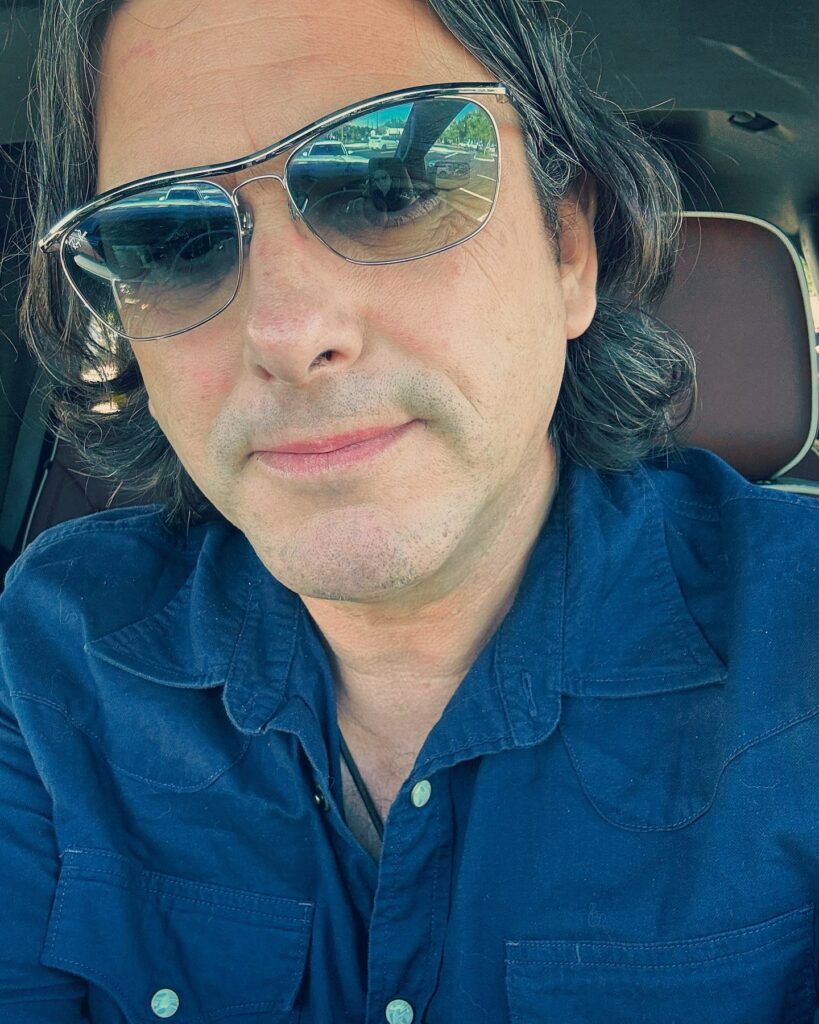
You stepped into the shoes of a band that existed long before you. Did carrying that legacy ever feel like a heavy responsibility, or more like inspiration, as you worked on these tracks?
Christian Parker: A little of both, to be honest. There’s definitely a weight to stepping into something with that kind of history—you want to get it right and show respect to the original band and the people who lived it. But more than pressure, it became a source of inspiration. These songs have a spirit that still feels alive, and that pushed me to bring my best without trying to imitate. The goal was never to replicate the past, but to honor it while adding a personal touch to the music. That made the process feel creative, not limiting.
When you heard about the idea for American Cosmic Revival, what went through your mind? Did it feel like a perfect fit given your passion for classic country? How did you find yourself on board with this project?
Patrick Cleary: I first heard about Christian Parker’s ‘Sweethearts’ album via Kandia CrazyHorse, who I collaborated with on a project she called Cosmic Americana. I believe she used to be a critic with the Village Voice, so she gets emails from PR companies, and she thought I’d be interested because she knows I’m a huge fan of The Byrds, Gram Parsons, and all his projects. So, I listened to the record and was very impressed. A few days later, I saw that Christian Parker sent me a friend request. I wasn’t sure how he came across me, but I sent him a message saying I heard the record and liked it very much. We got to talking and sharing music, and we really vibed well. Not long after that, he invited me to help him record parts for ‘Wheels’ for a future project he was calling American Cosmic Revival, and I jumped at the chance.
‘Wheels’ is one of the songs, along with ‘Love Hurts,’ I sang with my wife Cheryl at a Gram and Emmylou Hearts on Fire tribute concert promoted by Christopher Burkhardt. Brian Whelan invited me to play, and Jay Dee Maness was in the house band. I got a real kick playing with him. So, it’s a song I know very well, and I recorded Telecaster leads, the fuzz part, and harmony vocals. I had to tune the low E string to a low C to hit that low note. This version of ‘Wheels’ will be released on a subsequent volume of American Cosmic Revival.
Christian seemed pleased by my contributions and started asking me to perform on more tracks, and we started recording more and more songs. The concept to do the entire ‘Safe at Home’ album as a tribute record came up naturally since we were doing all the Gram Parsons-related songs we could think of, and he felt I could help bring it off, so he invited me to be his co-collaborator and co-producer. I am naturally honored to be on record with two big heroes of country music, Jay Dee Maness and Earl Poole Ball.
Do you remember the first time you ever heard Gram Parsons’ music? What was your reaction, and did it change how you thought about country music or songwriting in general?
Patrick Cleary: Oh yes, I remember it well. I was at home when I was maybe 11 years old, searching through my dad’s records, and I saw The Flying Burrito Brothers’ ‘Gilded Palace of Sin’ cover and was just staring at it in disbelief because these hippies looked so freaky in their country suits among the Joshua trees and the outhouse with some ladies that looked like prostitutes. I put the record on, a white promo label copy, and was even more dumbfounded by what I was hearing. I just had never heard country music in this way, with such a strange brew of influences, from soul to bluegrass to gospel. At first, I was almost laughing in disbelief. But I kept coming back to it. Then I got really into the Byrds a few years later, and finally I came to the ‘Sweethearts of the Rodeo’ album and realized Gram Parsons was the guy from the Flying Burrito Brothers. Sweethearts is a much more approachable record as far as the warm, commercial production, the opposite of the brittle, reverb-laden sound of ‘Gilded Palace of Sin,’ specifically with regard to the songs ‘Sin City’ and ‘Christine’s Tune,’ which was sped up, giving the voices that thin quality. I got into the ‘Sweethearts’ record and Hank Williams and really opened up to country music. When I went back to listen to the Burrito Brothers LP, it made total sense to me and I loved every song.
Another pivotal moment was when I heard ‘Safe at Home’ around the same time as ‘Sweetheart of the Rodeo’. ‘Blue Eyes’ struck me right away as an undeniably catchy, optimistic song and charmed me from the get-go. I love singing the chorus. It’s domestic bliss in a melody.
Gram mixed heartbreak and hope in his lyrics. Are there particular songs on ‘Back At Home’ where you feel personal meaning in the words? Can you share an example of a lyric that really hit you?
Patrick Cleary: ‘Do You Know How It Feels To Be Lonesome’ strikes me in a personal way, as it speaks to all of us musical outsiders who do not fit into the mainstream of the music business or mainstream culture in general. It speaks to our isolation from each other, the gaps between people that cannot or do not want to understand each other. “Did you ever try to smile at some people, and all they ever seem to do is stare?” is how I feel sometimes out and about in the wider world.
‘I Still Miss Someone’ is about missing a loved one, and though I have been happily married for many years, I was thinking about my family members that have passed on.
‘Folsom Prison Blues’ / ‘That’s Alright Mama’ is really nostalgic for me, since ‘Folsom’ was one of the first songs I ever learned how to play on guitar, from a Johnny Cash songbook I had around the house. And I loved Elvis when I was a kid. I memorized all the Top Ten hits and would sing along to them every Saturday morning growing up. The way Gram put them together is genius, so we hewed to that arrangement, but I added some subtle things like the Luther Perkins guitar hook at the beginning and the harmony vocal on ‘That’s Alright Mama.’

You and Christian worked closely arranging these songs. How would you describe your creative chemistry? Were there moments where your visions clashed, and if so, how did you resolve them?
Patrick Cleary: I think we worked together well. Christian took the lead in laying the foundations of these tracks, maybe with the exception of ‘Strong Boy,’ which I started (which is probably why it is a faster tempo than the original). I added a verse to that song, so it was the most “rearranged.” We never clashed; we just gave our honest feedback on the performances and the mixes in an effort to make them the best they could be. I think we are on the same page when it comes to wanting to hear magical moments and excitement on record.
During the recordings, did Earl or JayDee ever tell you a surprising story or insight about the original album? Did anything they said ever make you think differently about a song?
Patrick Cleary: Earl said about ‘Folsom’ that the words were wrong, but Gram got them wrong too, so that’s okay, or something like that! I like Gram’s slight rewriting of the great Cash’s words. Christian is the one who communicated directly with Earl and Jay Dee, so I’ll let him address that.
Gram Parsons’ life is still shrouded in myth. If you could ask him one question – anything at all about his music or life – what would it be?
Patrick Cleary: Well, considering the tragic way he died, I wish I could have pleaded with him to not be excessive with drugs and stay away from the hard stuff, considering his family background. I would ask him, “What is your best hope for a better America? Do you sing country music because it’s the music of the people, or is it just a lifestyle you admire?” We’re now fifty years out since the end of the Vietnam War, which he never saw the end of in his lifetime. I see no reason to think his attitude toward Uncle Sam would have changed since then.
To capture a vintage feel, did you guys use any old-school recording techniques or instruments in the studio? Or did you blend modern production styles? What guided those choices?
Patrick Cleary: We recorded in different places, in ProTools. Honestly, I don’t think the medium makes much difference. It’s how you manipulate the signal with gain, EQ, reverb, and compression, and the overall balance, or mix, that counts. I used an old 12-string (1964 Epiphone Bard), a 2011 Telecaster, and a 30-year-old Martin. If we all had the luxury of being in one place at one time, sure, I’d have loved to rehearse the arrangements and record directly to tape, but that was not an option.
As a performer of these classic songs, do you ever feel like a storyteller for an older era? Can you describe a moment when you felt particularly connected to the history or tradition of country music while performing?
Patrick Cleary: I don’t feel like I’m chronicling another time, I just feel comfortable being me. I think I feel the same excitement the original guys felt when they sang the song and heard the record back. I read that Elvis would do take after take until they all just knew they had captured something magical. That was how they would make a hit record.
If you had to pick one lyric from any of these songs that sums up why this project matters to you, what would it be and why?
Patrick Cleary: “I go out on wild parties, and I look for a little fun / but I find a darkened corner, ’cause I still miss someone.”
I always loved Johnny Cash’s lyrics. They’re so honest and direct. Sometimes all these shows can be fun and glamorous, and sometimes it’s the sadness and loneliness that inspires a lot of songs that come over you and leave you melancholy. I’ve lived the highs and the lows and everything in between.
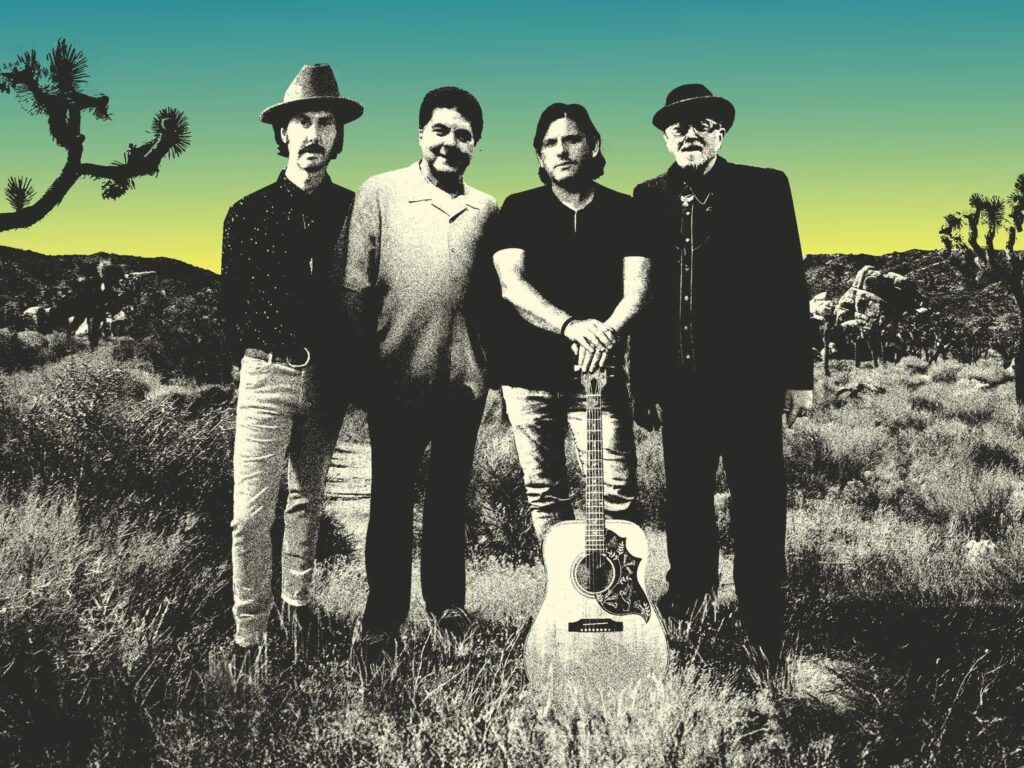
Do you think American Cosmic Revival will continue beyond this album? How do you envision its role in keeping Gram Parsons’ spirit alive, and what part do you hope to play?
Patrick Cleary: There are two more LPs planned! I think it will remind people how potent these songs are. You don’t have to adulterate this stuff with modern technique, just play the parts well and sing from the heart. That’s what counts.
Klemen Breznikar
Christian Parker Website / Facebook / Instagram
Patrick Cleary Website / Facebook / Instagram / Bandcamp
Earl Poole Ball Website / Facebook / Instagram
JayDee Maness Website / Facebook

